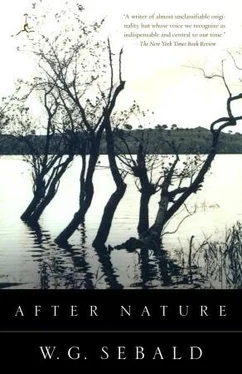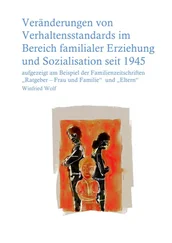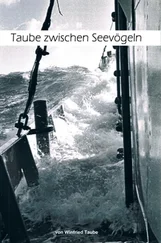constellation and that above the mountains
already the storm was hanging which soon thereafter
dispersed the supplicants and killed
one of the four canopy bearers.
Apart from the grievous impression this
occurrence, unprecedented in the village’s history,
may have made upon me, and apart from
the raging fire which one night — shortly
before my first day at school it was—
consumed a sawmill not far from our house
and lit up the whole valley, I grew up,
despite the dreadful course
of events elsewhere, on the northern
edge of the Alps, so it seems
to me now, without any
idea of destruction. But the habit
of often falling down in the street and
often sitting with bandaged hands
by the open window between the potted
fuchsias, waiting for the
pain to subside and for hours
doing nothing but looking out,
early on induced me to imagine
a silent catastrophe that occurs
almost unperceived.
What I thought up at the time,
while gazing down into the herb garden
in which the nuns under their white
starched hoods moved so slowly
between the beds as though a moment ago
they had still been caterpillars, this
I have never got over.
The emblem for me of the
scarcely identifiable disaster
since that time has been a stunted
Tatar with a red headcloth
and a white slightly curved
feather. In anthropology
this figure is often associated
with certain forms of self-mutilation
and described as that of the adept who
ascends a snow-covered mountain and long
tarries there, as they say, in tears.
In a sheltered corner
of his heart, so lately
I have read, he carries
a little horse made
of clay. Magical
crosswords he mumbles,
talks of scissor blades,
a thimble, a needle’s
eye, a stone in the memory,
a place of pilgrimage, and
of a small die, ice-coloured,
with a dash of Berlin blue.
A long series of tiny shocks,
from the first and the second pasts,
not translated into the spoken
language of the present, they
remain a broken corpus guarded
by Fungisi and the wolf’s shadow.
After that come the children grown
a little bigger who believe that
parts of their parents ride ahead
on the removal van’s horse
to make ready the living quarters,
while in the dark box
on the way to Gmunden
they eat their supper,
drink two pots of coffee,
spread butter on the bread
and say not a word about
either herring or radish. For months
Grandmother’s dying has now dragged on,
more and more water rising into her body
while in the village shop a poster
outlaws the yellowing
terror of Colorado beetles.
At the forest’s edge often a blackamoor
peered out of an American tank
and in the dark we saw
St. Elizabeth, lifting her skirts,
cautiously stepping over
red-hot ploughshares.
At school the beadle counted
his keys, Palm Sunday catkins
behind the crucifix chanted
their credo, and in the pencil case
on a scrap of paper already
the catchword of our dusty
future could be made out.
So one of us turned
into an innkeeper, the second
into a cook, the third into a waiter and
the fourth into nothing at all.
And from the hills we can see
the wispy shadows drifting
in Jehoshaphat’s Valley.
The magnetic needle, trembling,
points to the north, and I sense
a galvanic taste on my tongue,
a chemical miracle plated inside
with the finest horn silver.
The dreaded blackening
on certain parts
of the body confirms
the whole thing
most satisfactorily.
In a Chinese cricket cage
for a time we kept good fortune
imprisoned. The Paradise apples
grew splendidly, a good mass of gold
lay on the barn floor and you said,
one must watch over the
bridegroom as over a
scholar by night. Often
it was carnival time
for the children. Pink
cloudlets hung in the
sky. Friends came
disguised as Ormuzd
and Ahriman. But then unexpectedly
there was this thing with the elegant
gentleman at the opera and I found
a slowworm in the henhouse.
A crow on the wing lost a white
feather. The vicar, a limping
messenger in a black coat,
appeared on New Year’s morning
alone on the wide snow-covered field.
Ever since we’ve been arming ourselves
with patience, ever since sand
has been trickling through the letter box,
the potted plants have had a way of
keeping things to themselves.
A Nordic tragedy, chess
pieces moved hither and
thither, inevitably always
the end occurs.Why
do we embark on such
an arduous enterprise?
For comfort there remains
nothing but other people’s
misfortune: a feather
venomously yellow
on the beloved’s hat.
Prose from the last century,
a dress entangled in
thistles, a bit of blood,
an exaltation, a torn-up letter,
a star on the uniform and prolonged
stays at the window. Unhealthy
fantasies in a darkening
room, resented sins,
yes, even tears and in the memory
of fishes a dying fire, Emma,
how she burns the wedding bouquet.
What’s a poor country doctor
to make of all that? At the funeral
he dreams of a shining pair of
patent-leather boots and a posthumous
seduction. But now comes
a colourless age. You, in the midst
of this dazzling obscenity
I shall remember your
timorous gaze, how I
saw it first, that time
when in Haarlem we swam
through a gap in the dike.
Anniversaries and numbers,
how long ago it all is,
a chart of signs barely
to be deciphered through
these glass lenses. I still
can hear the Chinese lady
optician say, You ought
now to be able to read this
without straining your eyes,
and for a moment I feel
her fingertips on my temples,
feel how a wave crosses
my heart and in the test picture’s
bright square I see
the letter sequence
YAMOUSSOUKRO,
the name, I am
certain of this,
of a large rusty ship
from Abidjan which years ago
I saw putting out from
Hamburg harbour.
Black sailors stood
leaning on the rails,
they waved to us as they
passed by, the sun was just
going down and already
the shadows were quivering
at the edges.
In his excitement about the truly
boundless growth
of industry, the statesman
Disraeli called Manchester
the most wonderful city of modern times,
a celestial Jerusalem
whose significance only philosophy
could gauge. Half a life ago now
it is that, after leaving my remote home,
I arrived there and took lodging
among the previous century’s
ruins. Often at that time
I rambled over the fallow
Elysian Fields, wondering
at the work of destruction, the black
mills and shipping canals,
the disused viaducts and
warehouses, the many millions
of bricks, the traces of smoke,
of tar and sulphuric acid,
long have I stood on the banks
of the Irk and the Irwell, those
mythical rivers now dead,
which in better times
shone azure-blue,
carmine-red and glaucous green,
in their glow reflecting
the cotton clouds, those white ones
Читать дальше












